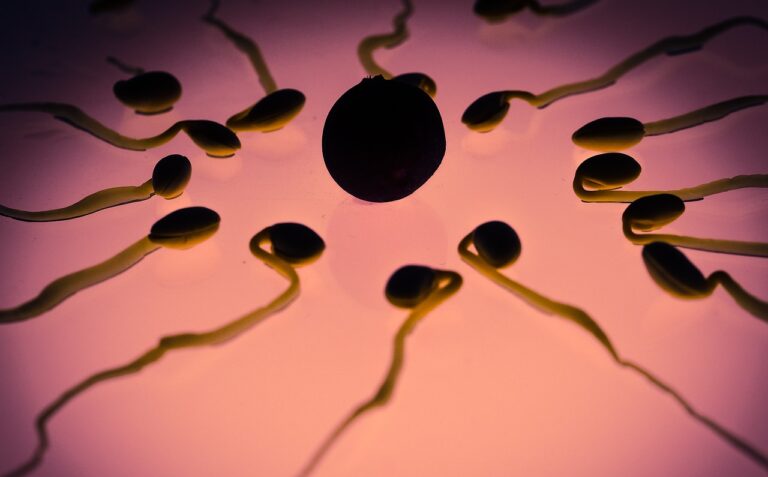The human body regenerates sperm continuously. It takes about 64 days on average for the sperm production cycle to complete. This means that a man will never run out of sperm. Sperm that is not ejaculated is reabsorbed by the body or lost during nocturnal emission (wet dreams).
The process of ejaculation requires a lot of energy. Therefore, it is common for men to experience a temporary decrease in physical performance and stamina after ejaculation.
How long does it take for sperm to refill?
Men’s bodies create billions of sperm cells each day, and they are able to fertilize an egg (providing the woman is in her fertile window) in about two days. Because of this, a man is unlikely to run out of sperm, even if he ejaculates several times a day or has been struggling with infertility.
The sperm cells that are released during ejaculation can survive for a short time outside the body, depending on where they land and how dry or hot they are. Sperm that make it into the warmth and humidity of a woman’s vagina can live up to five days, aided by the protective mucus. Sperm that make it into a jar of water or a bathtub might not last more than minutes, though. They’re also likely to perish if they hit a hard surface, such as a computer screen or bathroom floor.
The sperm cells are engulfed by fluid from seminal vesicles to form semen, which is then transported through the vas deferens into the urethra. Semen contains anywhere from 40 million to more than 1 billion sperm cells, according to various reports. The sperm cells are then broken down and reabsorbed into the body. Men are able to produce sperm throughout their lives, although production slows down significantly after age 52. This is due to a decrease in testosterone levels and a general decline in health, according to MedlinePlus.
How long does it take for energy to replenish?
Ejaculation is a natural bodily function that occurs in most men, but it can leave you feeling lethargic and tired. This is because ejaculation requires a lot of energy, and the body needs time to replenish this energy. Fortunately, there are a few things you can do to help your energy levels recover after masturbation. These include eating a balanced diet, getting enough sleep, and practicing relaxation techniques.
One of the most effective ways to boost your energy levels is by consuming nutrient-rich foods. This includes complex carbohydrates, protein, and healthy fats. You should also drink plenty of water and stay hydrated. Additionally, it is important to avoid consuming too much sugar or caffeine, which can cause energy crashes and fatigue.
Another way to increase your energy levels is by incorporating exercise into your daily routine. This can help improve blood circulation and oxygenation, which can increase energy levels and mood. In addition, exercise can also reduce stress and promote overall mental health and well-being.
Finally, it is important to manage your stress levels, as this can affect your energy levels. This can be done by using stress-reduction techniques, such as deep breathing exercises and meditation. Additionally, you can try to eliminate as many stressors as possible from your life, and prioritize sleep. By taking these steps, you can help your energy levels recover after ejaculation and feel more energized throughout the day.
How long does it take for the sperm count to refill?
Sperm are a vital part of the conception process. They help to fertilize the egg and can survive outside the body for a few hours.
The body produces millions of sperm cells every day. It can take up to 2.5 months for a germ cell to mature into a sperm cell that is capable of fertilizing an egg. This process is called spermatogenesis. It takes place in the seminiferous tubules, which are tiny tubes in the testicles. After a sperm cell is mature, it will be released into the epididymis. From there, it will combine with fluids from the seminal vesicles and prostate gland to form semen. Semen contains only 10% sperm, but it can be quite acidic and is full of other fluids, such as enzymes, salt, vitamins, zinc, and citric acid.
Once ejaculated, sperm will start to swim through the vaginal fluids until they reach the fallopian tube where they can fertilize an egg. This is a long journey, but sperm can travel about seven inches per minute.
Sperm can last for a few hours outside the body, but they must be ejaculated within five days of being produced in order to be able to fertilize an egg. If the sperm count is too low, it can lead to infertility. It’s important to have a regular sperm count and see a doctor if your sperm isn’t doing well.
How long does it take for the energy count to refill?
Ejaculation requires a great deal of energy, and as such, it is not uncommon for men to feel fatigued or sluggish after ejaculating. This feeling of exhaustion is due to the release of hormones and neurotransmitters. However, it is typically short-lived and should not be a cause for concern. In fact, research has shown that ejaculation can actually improve physical performance and stamina in the long run.
Another benefit of semen retention is that it can help raise testosterone levels. This is because unused sperm will be broken down and reabsorbed by the body, rather than being expelled in the form of a vaginal discharge. Regardless of the reason for ejaculation, it is recommended that men should try to practice semen retention as often as possible in order to maximize the benefits of the practice.
In a recent study, a group of researchers examined the effect of sperm retention on functional semen parameters, such as intracellular ROS production, DFI, DPsm high spermatozoa and plasma membrane integrity. The results showed that the quality of semen improved after a two week period of sperm retention, but did not return to baseline values. Interestingly, the same group of researchers reported that a longer period of sperm retention resulted in a decrease in sperm motility and concentration. This is likely because the body is unable to keep up with its normal production of sperm under these circumstances.
See Also:



